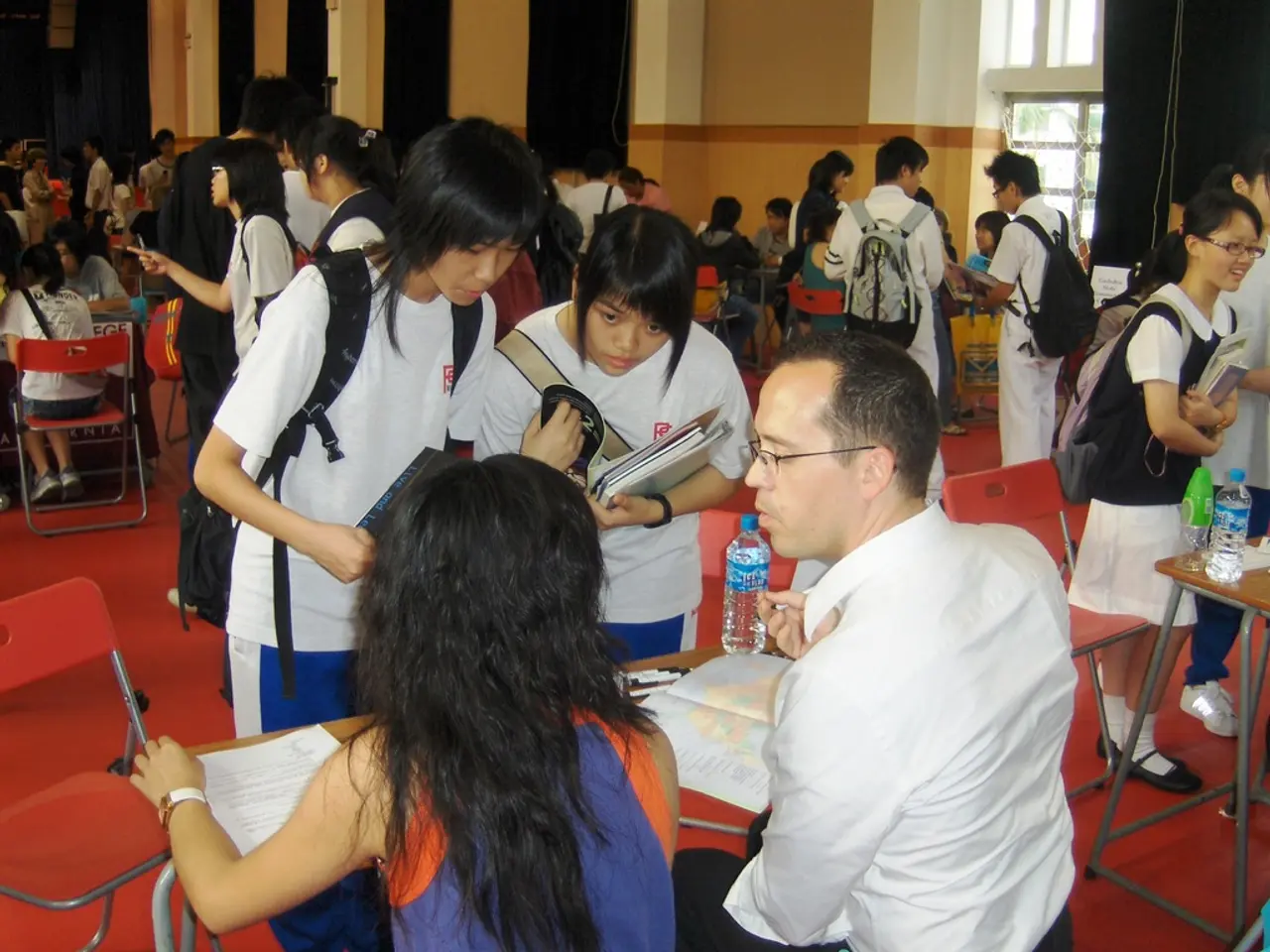Reducing stress and worry in educational institutions - Reduced Anxiety and Apprehension in Educational Institutions
Rhineland-Palatinate Schools Adopt New Policies to Reduce Pressure and Anxiety
Rhineland-Palatinate schools are making significant changes to their learning environment, with a focus on reducing pressure and anxiety for students. The new policies, which have generally received cautious approval from various education associations and political groups, aim to create a more supportive and less stressful learning environment by limiting surprise homework inspections and adapting test practices.
Unannounced homework checks will no longer be allowed in Rhineland-Palatinate schools, starting from the 2025/2026 school year. This move has been welcomed by several educational organizations, including the GEW, as an important step towards a better learning atmosphere. The Association of Education and Education (VBE) also shares this sentiment, considering it an essential step in fostering a fairer and more predictable classroom environment that can alleviate performance pressure.
However, some associations have called for careful monitoring to ensure these changes do not inadvertently lower academic standards or reduce accountability among students and teachers. The Association of Philologists, for instance, criticizes the ban on unannounced homework checks as a significant political intervention in pedagogical daily life.
Progressive and student-supportive political factions largely support these policies as they align with broader goals of improving mental health and wellbeing in schools. On the other hand, more conservative or traditional groups sometimes express concerns about the possible weakening of discipline and rigor, emphasizing the need for a balanced approach that considers academic outcomes alongside student welfare.
The Minister of Education in Rhineland-Palatinate, Sven Teuber (SPD), aims to change the learning and testing culture in schools. To this end, all homework checks will be announced when homework is given, and an AI learning assistant will be piloted in the school year to support teachers in preparing lessons and creating individual learning content.
The number of full-day schools in Rhineland-Palatinate will increase to 665 in the new school year, and an additional 120 teaching positions will be available from February next year to meet increased demands. As a result, the number of teaching staff in Rhineland-Palatinate schools has reached a record high of 45,000 pedagogues.
Despite these positive developments, it's important to note that more children and young people are experiencing school as an uncomfortable space, according to the School Barometer 2025. Around 39,900 new first-graders will start school in Rhineland-Palatinate in the 2025/2026 school year, which is approximately 1,150 fewer than last year.
These changes in Rhineland-Palatinate schools reflect a broader trend in educational reform in Germany, focusing on mental health and holistic student support. However, more detailed reporting from local sources is needed for a comprehensive picture of the situation. The reception to these policies underscores the need for ongoing evaluation and dialogue among educators, parents, and policymakers to ensure the reforms achieve their intended benefits without unintended drawbacks.
In line with the focus on mental health and holistic student support, Rhineland-Palatinate schools are planning to implement a vocational training program as part of their educational and self-development initiatives, aiming for personal growth and learning through practical skills acquisition.
To foster a better understanding of these changes, ongoing monitoring and vigilant evaluation of the policies' impact on academic standards and personal development will be essential for a balanced and effective educational environment.




